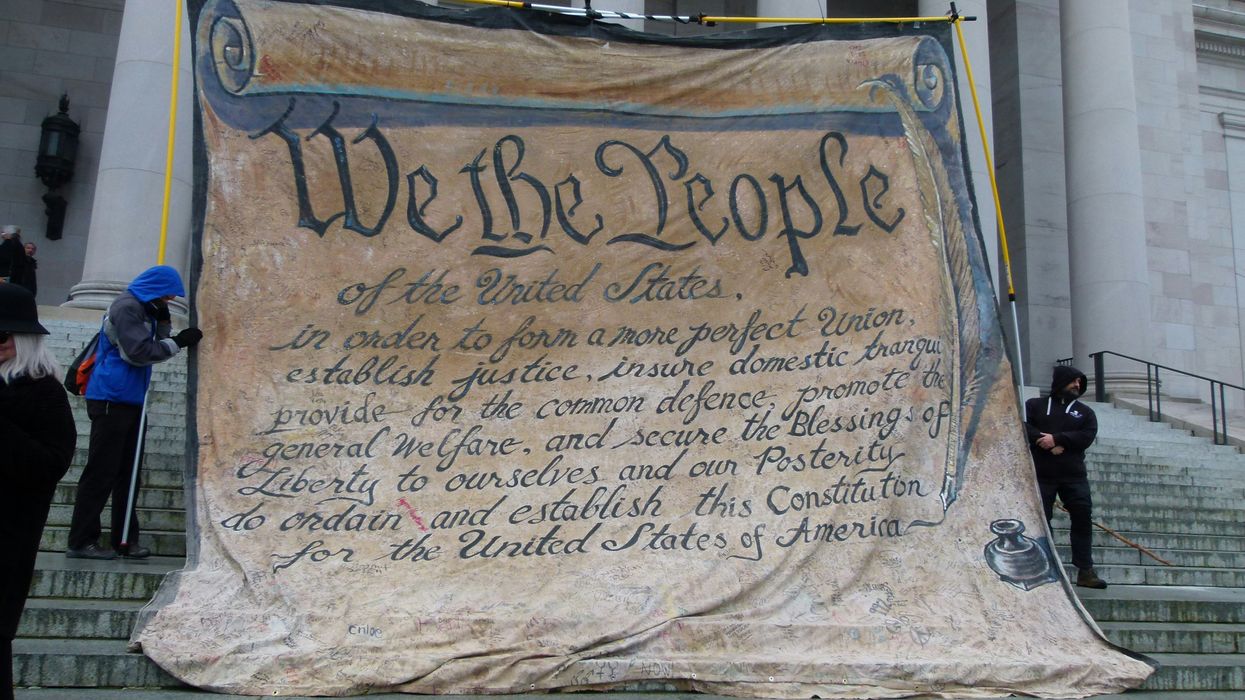The Fulcrum presents The Path Forward: Defining the Democracy Reform Movement. Scott Warren's interview series engages diverse thought leaders to elevate the conversation about building a thriving and healthy democratic republic that fulfills its potential as a national social and political game-changer. This initiative is the start of focused collaborations and dialogue led by The Bridge Alliance and The Fulcrum teams to help the movement find a path forward.
I’m grateful to continue my collaboration with the Fulcrum to interview leaders across the pro-democracy sector to attempt to understand the way forward. We originally launched this series to explore how the field could, and should, change. As I’ve continued to lead these interviews, it has become quite stark, in a potentially obvious lesson: there's no single roadmap to “save democracy.”
That may seem obvious. But it’s a useful reminder. No matter how many conversations and interviews are conducted, a singular strategy will not emerge. Instead, hopefully the value lies in continuing to elevate diverse insights and reflections, and occasionally offering my own.
Please let me know if you’d like to contribute to the series (or have ideas of other perspectives and individuals to interview).
The latest five interviews included:
- Karissa Raskin, focusing on the bridging movement
- Aditi Juneja, who has started an organization dedicated to futures thinking in democracy
- Francis Johnson, providing a conservative focus on the democracy movement
- Connie Razza, who has looked to bridge the economic justice and democracy fields
- John Bridgeland, who has helped to create overarching democracy goals and coordination
These conversations surfaced several key tensions that continue to animate the field.
What do we mean by “Democracy”?
I often worry that we say “pro-democracy” community without fully understanding what we mean by the concept of “democracy.” There is a risk that the field becomes shorthand for “anti-Trump.” This is not to say that the current Trump Administration is not a threat to democracy. But a pro-democracy movement needs to understand what it supports, not just its oppositional focus.
The truth is that most Americans see themselves as advocates of democracy. Indeed, the January 6th protestors would, and do, see themselves fundamentally as protectors of democracy. They felt that their democracy was stolen from them, and that they needed to save it. I profoundly disagree. But their self-perception underscores the power- and ambiguity- of the term.
Francis Johnson spoke to this reality throughout his interview, noting that conservatives and progressives alike advocate for democracy, but are grounded in very different conceptions of what democracy should achieve and how it should function. He argues that progressives advocate for a more participatory form of democracy, whereas conservatives believe in a more representative definition.
There is also a risk that progressives weaponize democracy for a broader agenda, beyond a defense of institutions and the rule of law. I have heard from numerous individuals in the past few months that they are worried this problem is becoming worse, not better, in the Trump Administration, as a pro-democracy agenda has come to encompass a laundry list of progressive priorities. This definitional question seems foundational at the moment.
What is the opportunity and imagination right now?
There is a great deal of rightful focus on defending democratic institutions right now. But a defensive strategy is not always inspiring or motivational.
Both Aditi and Connie spoke to the importance of providing a more compelling vision of what a meaningful democracy looks and feels like to individuals, as well as exploring potential opportunities for positive change.
Aditi’s work has attempted to work with organizations and individuals to broaden their horizons of what may be possible, and she notes that the Trump Administration itself has been incredibly imaginative in its (destructive) approach. Connie similarly spoke to the importance of the movement providing meaning, inspiration, and joy.
There may be widespread destruction and fear. But making sure that those in this space are thinking about how to provide meaning and positivity when it’s lacking for so many (especially considering the potential insularity of the sector) is critical.
How can we stay curious?
Finally, a question that drove the creation of this series: Can we stay curious?
Too often, organizations stick rigidly to their preferred strategies, whether due to institutional inertia, fundraising incentives, or simply ego. But no one approach will suffice.
A necessary antidote to that behavior is maintaining and growing a basic sense of curiosity. Karissa Raskin gave voice to the importance of, as she noted, leading with curiosity rather than judgment. Too frequently, I’ve found the opposite. I’ve met too many in the “pro-democracy” space who judge those who hold divergent views, rather than asking why they harbor specific perspectives.
We need to ask more questions. Why aren’t our visions of democracy resonating? How might we bring more people into the fold? What might we learn from those we disagree with?
Thanks to all of you who are reading and listening. I’d love your feedback: What’s resonating? What’s missing? And whose voices should we elevate next?
Scott Warren is a fellow at the SNF Agora Institute at Johns Hopkins University. He is co-leading a trans-partisan effort to protect the basic parameters, rules, and institutions of the American republic. He is the co-founder of Generation Citizen, a national civics education organization.




















Trump & Hegseth gave Mark Kelly a huge 2028 gift